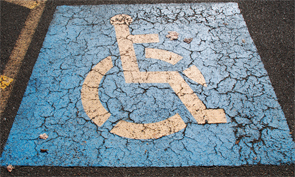
Patients often request our aid on applications for disability, Supplemental Security Income, FMLA, handicap parking placards and protection from utility shutoffs. Some of these requests seem like patients are trying to “milk the system.”
She now presented with paperwork from the financial aid office of her daughter’s college requesting a letter from the physician treating the parent of the student, stating that the parent will never be able to work in any capacity in the future. We were told that failure to make such a statement would affect her daughter’s ability to obtain an education. Yet her condition is treatable, and her disability potentially quite temporary; she could reasonably expect to return to full function with effective treatment.
On the other hand, her disease has not yet been well controlled, and she’s been unable to work, earn an income or pay for her daughter’s education. It is our responsibility to do what we can to correct that situation.
As rheumatologists, we are often beset with paperwork requests from patients to aid with applications for disability, Supplemental Security Income (SSI), FMLA, handicap parking placards and protection from utility shutoffs. Some of these requests are legitimate, and others seem like patients “milking the system.” Doing the right thing can seem like a difficult balance.
Once you’ve considered the question carefully, don’t hesitate to draw a line in the sand.
Case 6
Other kinds of ethical dilemmas also arise—ones in which everything is done right, but still ends up feeling wrong. For years, we treated a man who had been the director of the camp that his treating physician had attended every summer as a boy. The patient was a hero to his rheumatologist and was a well-respected, well-spoken and intelligent educator. His visits were a highlight of the week. Over the years, his cognitive function declined, and detailed evaluation confirmed the presence of progressive dementia. He asked his rheumatologist to speak to his children about his need to relocate close to them so he could have more help and support. The patient and his family were grateful that his rheumatologist was the one who informed them of the diagnosis, but even now, several years later, it didn’t seem entirely right.
His rheumatologist still remembers thinking, “Wait, what? You want me to do what?”
The Right Choice
In clinical practice, our office is way ahead of the curve: We implemented electronic medical records almost a decade ago. Our clinical systems promote efficiency, quality and safety. We have organized ways of doing things. The physicians have good communication and working relationships with other providers, and everyone is on the same page—at least that’s usually the case.
